Hello everyone, welcome to Loitering, the occasional but lovable traveling mini pod I am currently testing in newsletter format. And today, we are doing a throwback to the original Loitering and taking you to a location with a very special guest. Right now we're at Stinson Beach, and our guest — can you please introduce yourself?
Laura: Hi, I'm Laura Rena Murray. I have been working as a longform investigative journalist for the last decade. I usually cover topics relating to homelessness and housing, the LGBT community, public health, specifically HIV/AIDS, yeah.
Sonia (0:39): Can you, uh, talk a little bit about one of the stories you've done in the past that you're most proud of, or is most memorable or special to you?
Laura (0:48): I spent a fair amount of time reporting on reservations in the Midwest, specifically reporting on the Indian Child Welfare Act.
Sonia (0:55): Uh, for those who don't know what that is, can you just explain a little bit what that is?
Laura (1:00): So, it's a law that was created in the late 70s, to sort of combat the practice of removing Native children from their families and communities, and placing them in non-Native foster homes or systems. And part of the reason was because you have all of these communities who were systematically losing their children for many reasons, but it all sort of boiled down to inherent racism, and what we've done to Native American communities across this country. So, it was an important step to try and preserve those communities. And it was something that I wanted to see if it was working or not. So I took a few months, and hit the road, and went to many reservations reporting on what was happening.
Sonia (1:44): And what do you think was the outcome of your story, or what's the takeaway for those who ought to be intrigued to read it to understand further?
Laura (1:54): I think it helps to illuminate what is happening to a community in the present day. You know, a lot of people, if they've never been to a reservation, they're not thinking about it. There are a lot of stereotypes people have about who native families are, and sort of how they rear their children. And I think the stories that came out of that reporting trip helped educate a lot of people who are non-Native, but also offered a platform to families who are struggling to get their children back, and caught up in systems where they didn't have a chance. There were some places I'd go, and the family would have less than 30 seconds or they wouldn't be allowed to speak at all in a courtroom. And it would just be the social workers speaking directly to a judge, recommending to remove the child. And, often children are removed because their families were poor. Like, that's what it boiled down to. It wasn't anything else about the child being in danger, but I think it was some, like insane percentage of children were removed for neglect, which was basically a code word for poverty.
Sonia (2:56): Well, for those of you who are listening and reading, we're going to have a link to that story in the newsletter. So please reference that below. And so Laura, you've been working as a freelance investigative journalist for over a decade, but your day to day job right now is a little bit different. Can you tell us what you're doing in your day to day these days?
Laura (3:18): So, a few years ago, I started training to become a motorcycle technician. I love riding motorcycles. And I bought my first motorcycle probably five or six years ago. And a few months ago, I got a job working in a motorcycle shop. I work at the BMW shop in San Francisco. And it's great. It's entirely unlike journalism, in that it offers a little more stability. And also, there's something really lovely about being able to fix a problem in a day. Which is just not something that you get from a lot of other jobs. And how marvelous is that?
Sonia (3:56): So Laura, I'm just kind of wondering like, how do you think about that in relation to the way you think about yourself as a journalist or writer? Are you still the same two Laura Rena Murrays, or is there one, newer version of you that's emerging now?
Laura (4:14): That's a hard question. I think that our industry —
Sonia (4:18): Meaning the journalism industry?
Laura (4:20): Yes. I mean, I've been doing it for a decade now. And just seeing the changes in the industry, like we're trying to adjust to layoffs and publications shutting down. And, you know, there are some stories I've worked on where I've like gone through multiple editors who have been laid off during the course of reporting the story, and it feels unstable. It's difficult to make it work. Even though at the core of me, I feel journalism is the perfect job. I love immersion into communities, and learning about power structures and where they fail, and what the consequences are and who's responsible for that. And I love writing. It's, I think, it's something that I was always meant to do.
(5:09)
But, it is hard to do that when you aren't supported, when we can't pay our rent. Literally, that's what's happening. And that's something that really makes me pause when I think about sustainability and how we live our lives. And you know, we work in journalism because we are the observers, the note takers. We record history as it happens. We think it's important for everyone to know what's happening, whether or not you have access to the institutions of power that run our country and our world. So yeah, I think I'm a little bit torn right now in terms of, you know, wanting some stability in my life and wanting to sort of do the job that I know I was born to do.
Sonia (5:52): Do you think the tension about stability comes from journalism writ large or the nature of freelance reporting?
Laura (6:01): I think both go hand in hand. I think most people don't actually understand how much the institution of journalism is supported by freelance journalists who sacrifice a great deal in order to report the stories that really, make a huge difference.
Sonia (6:20): So, do you have any ideas or recommendations for what we ought to do to think about moving forward?
Laura (6:29): So, I — I don't know that I know the answer. But, I do think that there are many things about this world that require a more comprehensive understanding of what's going on. More background and history, like you need the context in order to know what's happening, unless you live in a community and you are consuming the news daily. And so I think that longform journalism, I think investigative journalism, really, actually, every piece that is produced, is sort of a testament to the sacrifice that was made by the journalists who worked on that story.
(7:05)
And as freelance journalists, we both know how much you sacrifice in order to work on the story. You know, you get nominal grants to sort of cover the expenses of reporting — if you're lucky — you know, but the story where I was reporting on reservations for months at a time, I was sleeping in my car, and you know, drinking lots of coffee and not eating very much, just in order to stretch the small grant that I had gotten to cover the story. So that's tough. I don't, I don't know what the answer is to change that. But my hat goes off to every journalist who persists in producing quality work because we need it.
Sonia (7:46): Yeah, and I'm, I'm curious, because for a long time now, you've been working on a book. And I'm wondering if you would be open to talking a little bit about that, and if you're imagining a different version of its lifespan, given the sort of restructuring of the work that you are doing right now to make your personal life work, and professional life work?
Laura (8:09): Right. Yeah, writing a book takes a lot. And I think it requires a lot of support. It requires, like the financial ability to actually do the work. The book that I started working on now a few years ago, is looking really at the child welfare system in the city where I grew up, Philadelphia. And there is so much that is wrong with that system — with the shelter system, with how child abuse investigations are handled, and so many children slip through the cracks and have terrible things happen to them. And so, I was interested in writing this book that was, as I was calling it at the time, I reported memoir of my own experiences of going through that system, and becoming an emancipated minor in order to get out of that system before I turned 18.
(8:58)
And trying to write a book in your spare time is difficult. It's been on hold for a little bit, in part because there is a part of me that wants to stabilize and not just eat ramen five days a week.
Sonia (9:11): Well, we just ate some delicious ice cream, by the way, um.
Laura (9:15): Shout out to Stinson Beach ice cream.
Sonia (9:17): Mint chocolate chip and Dutch chocolate, FYI.
(9:21)
I wanted to wrap up with some recommendations for any books, podcasts, articles. Do you have any, Laura?
Laura (9:29): Well, we were talking while we were waiting in line for ice cream about some that you have been listening to lately or reading, and I thought that you had some amazing ideas.
Sonia (9:40): Well, I'm in the middle of like, multiple books. And I listen to a lot of podcasts. One podcast series — it's not its own show, but it was a sort of mini series on the show On the Media. It's called The Scarlet E. And it's actually based on this book that we actually both have and will hopefully have a book club about soon. It's based on this book called Evicted. And, it's basically about housing, and what it means to afford a life in modern day USA.
And another book I'm in the middle of reading that I need to finish up for another virtual book club I'm doing with a couple of friends is Nomadland, which is written by Jessica Bruder. It's about retirees who are living in campers and working as, like, security guards at national parks or in Amazon warehouses, and trying to make a life that they could afford and enjoy at a later stage in life.
Laura (10:39): Yes.
Sonia (10:39): Yeah.
Laura (10:40): I'm excited to read both.
Sonia (10:41): Okay, yeah, we're gonna have another book club.
So, thank you for reading and listening. That's all we have for today's episode of Loitering, the occasional but lovable traveling mini pod I am currently testing in newsletter format. And, in case you forgot, you know, the sound of the ocean is behind us. That's because we are loitering at Stinson Beach right now. Thanks for listening and have a great day. Goodbye!
Links to Laura’s stories on Native reservations:
The Standing Rock Sioux fight to get their children back, for Al Jazeera America
'We get the kids back': Native American grandmother fights to preserve families, for The Guardian
“It’s Like A Set Up To Get Rid Of Indians”, for Bright Magazine
Links related to Laura’s book-on-pause:
Minor Cords, for The New Inquiry
Laura speaking at the Lambda Literary Foundation
Philly’s Invisible Youth, for Al Jazeera America
Laura is on Twitter, but she’s mostly offline with birds and motorcycles.

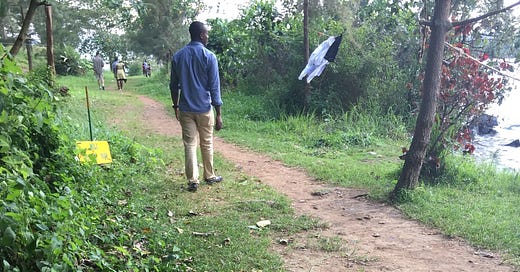




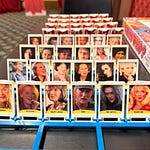
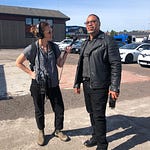
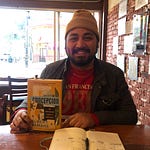
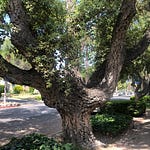


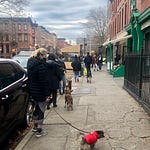
Share this post